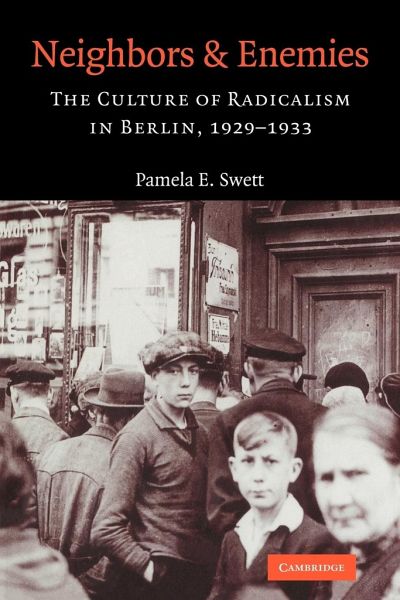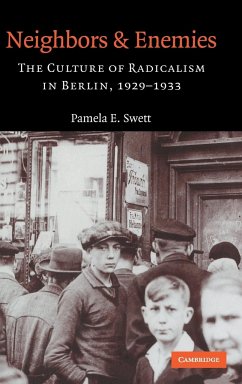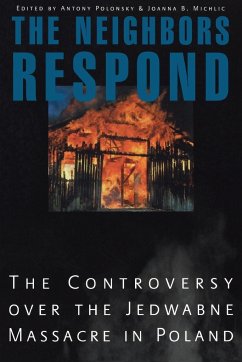
Neighbors and Enemies
The Culture of Radicalism in Berlin, 1929 1933

PAYBACK Punkte
29 °P sammeln!
Neighbors and Enemies provides an interpretation of the collapse of Germany's first democracy, the Weimar Republic, which ended with the naming of Adolf Hitler as chancellor in January 1933. This study focuses on individual workers in Berlin and their strategies to confront the crises in their daily lives introduced by the transformation of society after 1918 and intensified during the Depression. Tensions between the sexes and generations, among neighbours, within families, and between citizens and their political parties led to the emergence of a radical - and at times violent - neighbourhoo...
Neighbors and Enemies provides an interpretation of the collapse of Germany's first democracy, the Weimar Republic, which ended with the naming of Adolf Hitler as chancellor in January 1933. This study focuses on individual workers in Berlin and their strategies to confront the crises in their daily lives introduced by the transformation of society after 1918 and intensified during the Depression. Tensions between the sexes and generations, among neighbours, within families, and between citizens and their political parties led to the emergence of a radical - and at times violent - neighbourhood culture that signalled a loss of faith in political institutions. Swett offers an interpretation that marries a history of daily life in Depression-era Berlin with an analysis of the meanings of local politics in workers' communities, shifting our focus for understanding Weimar's collapse from the halls of governmental power to the streets of the urban core.














